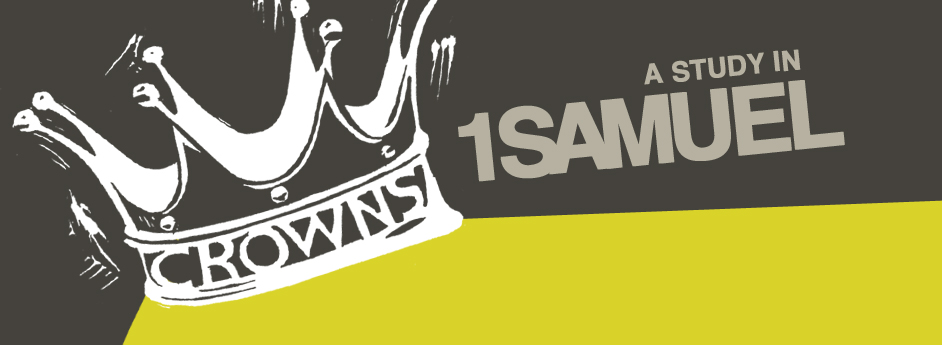
1 SAMUEL // A QUESTION OF LEADERSHIP
In 2016, the dominant conversations in society were about leaders. The presidential election stirs this up every 4 years, but this last year was different; it was about much more than who would be our next president. There was a much deeper discussion about the purpose, characteristics, and limitations of those who lead us. Questions like:
Does it matter if our leaders have a moral structure?
Do we need an empathetic leader or a powerful one?
Do we want a leader who works within the status quo or one who will shake things up?
What flaws can we overlook and which ones are disqualifying?
It went well beyond who lives in the White House. Due to data leaks and website hacks, we were left questioning the interests of our government. Police shootings and aggressive tactics had us wondering if law enforcement could be trusted. Even the media, who had been the trusted source for rooting out bad leaders, has been cast as an abusive authority. This has led many to extreme view of freedom/liberty: that no person should ever be in a position to rule over another person. For others, it simply leads to confusion; in every area of life, we are left wondering: do we need anyone to lead us? If so, what should that leadership look like?
1 Samuel answers many of these questions, not by giving a quick shorthand to twenty-first century politics, but by giving us a story about the establishment of the monarchy in Israel. As Israel is going through the transition to a king, they are given direction by God through teaching, through experience, and through a contrast of the different people that God raises up to lead them. In all of this, God is making a statement about leadership and about being led. He is showing us what is important in how we understand our relationship with the power structures of the world.
PART 1 // GOD ANOINTS A PROPHET
How God leads
He is lent to the Lord.
I rejoice in your salvation.
I will raise up for myself a faithful priest.
Here I am!
The glory has departed from Israel!
Who is able to stand before the Lord?
Till now the Lord has helped us.
Introduction
1 Samuel
1 Samuel 2:1-10
1 Samuel 2:11-36
1 Samuel 3
1 Samuel 4
1 Samuel 5:1-7:2
1 Samuel 7:3-17
PART 2 // THE PEOPLE ANOINT A KING
There shall be a king over us.
He shall restrain my people.
Long live the King!
The Lord has worked salvation in Israel
He is witness.
What have you done?
The Lord has given them into our hand.
I regret that I made Saul king.
1 Samuel 8
1 Samuel 9
1 Samuel 10
1 Samuel 11
1 Samuel 12
1 Samuel 13
1 Samuel 14
1 Samuel 15
PART 3 // GOD ANOINTS A SHEPHERD
The Lord looks on the heart.
Let no man’s heart fail because of him
I will pin David to the wall!
Is not the arrow beyond you?
You turn and strike the priests
They will surrender you
You have repaid me good, whereas I have repaid you evil
Blessed be your discretion, and blessed be you
I shall escape out of his hand
The Lord has turned from you
This is David’s spoil
1 Samuel 16
1 Samuel 17
1 Samuel 18 + 1 Samuel 19
1 Samuel 20
1 Samuel 21 + 1 Samuel 22
1 Samuel 23
1 Samuel 24 + 1 Samuel 26
1 Samuel 25
1 Samuel 27 + 1 Samuel 29
1 Samuel 28
1 Samuel 30
WHAT HAPPENS NEXT

